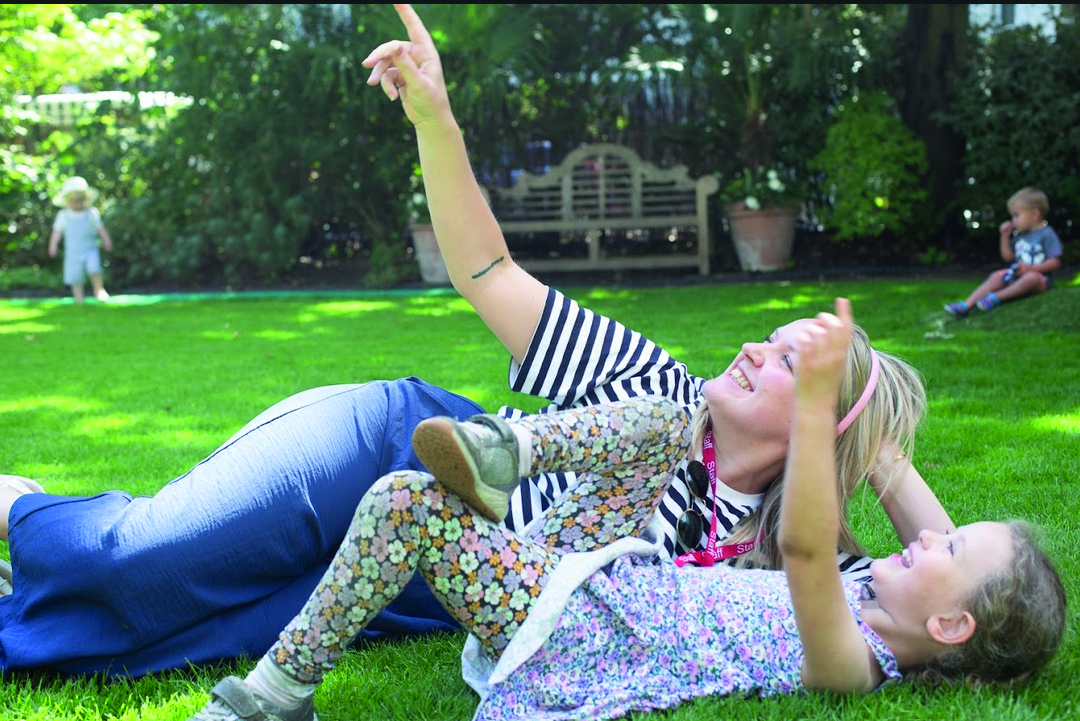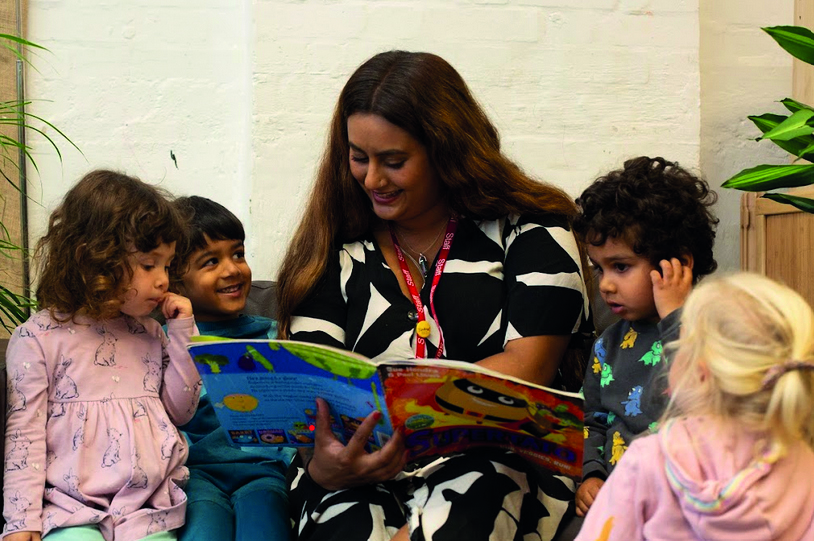
Nurseries are increasingly confident about setting and promoting their own curriculum, drawing from a range of theories and approaches. Kids Planet, for example, blends thinking from Montessori, Steiner, Froebel and others to create its pedagogy. Bright Horizons placed wellbeing at the core of its curriculum in 2021. And it is not just the big chains – smaller groups and single settings are also creating, embedding and communicating their own pedagogies.
While settings have to follow the EYFS framework, the approach they take and the curriculum they use is up to them. There is an increasing realisation that the guidance Development Matters is non-statutory, says Stuart Graham, strategy and operations director at Monkey Puzzle Day Nurseries.
‘In the past it has concerned me that people were embedding Development Mattersas a tickbox exercise, but that is changing, and I am excited to see what people are creating with their own curriculums,’ he says. However, there is a risk that curriculum development is simply seen as ‘the next shiny thing’, lacking a strong pedagogical underpinning, he warns. ‘If groups create a curriculum with customer attraction as their intent, it will not achieve its potential and may limit the development of children. Even a curriculum with great pedagogical foundations may miss its intent [without] training and support for staff.’
Seeing the big picture
 The need for a leader to ensure a setting’s pedagogy is based on strong foundations, reflected in the curriculum and communicated to parents and staff is highlighted by a new apprenticeship. The Level 6 Early Years Pedagogical Lead is being developed by the same group of employers that created 2021’s Level 5 Early Years Lead Practitioner apprenticeship.
The need for a leader to ensure a setting’s pedagogy is based on strong foundations, reflected in the curriculum and communicated to parents and staff is highlighted by a new apprenticeship. The Level 6 Early Years Pedagogical Lead is being developed by the same group of employers that created 2021’s Level 5 Early Years Lead Practitioner apprenticeship.
‘A lot of settings have struggled with understanding they have a choice and can create their curriculum,’ says Diana Lawton, managing director of the Our Monkey Club nursery group and trailblazer group member. ‘We need a sector led by people who understand how to consolidate ideas and change them into exemplary practice.’
The group fought for the apprenticeship to be titled Pedagogical Lead rather than Early Years Teacher, as it was important to show that it is a separate role to that of the Early Years Lead Practitioner, says Lawton. Having established the knowledge, skills, behaviour and duties required for the role, the group must now show both that the sector has a need for the Pedagogical Lead role, and that to perform the role requires a Level 6 qualification. A consultation, which closes in December, will give the sector a chance to give its view.
The Pedagogical Lead apprenticeship will be part of an experience-based learning pathway which also includes the Level 3 Early Years Educator apprenticeship and the Level 5 Early Years Lead Practitioner. This is designed to sit alongside and offer an alternative to the more academic pathway which includes college and university-based qualifications such as Level 6 degrees in Early Childhood Studies.
‘The sector is crying out for experienced practitioners, but employers find students have not got the experience to talk to parents, engage in deep-level planning, or lead a team,’ explains Lawton.
While both Level 5 and Level 6 practitioners would be expected to understand a range of different pedagogical approaches, one is an operational role and the other is more strategic, Lawton says. ‘At Level 5, a practitioner should understand how to provide learning in line with their centre’s existing pedagogy and curriculum, and feed back on how it is impacting the children, and what needs developing and changing,’ she says. ‘Level 6 is about taking national strategies and frameworks, and international research and ideas, and creating a pedagogical approach and curriculum for their centre.’ Where a Level 5 would model exemplary practice and mentor others, a Level 6 will develop training opportunities and communication strategies to articulate their centre’s pedagogic approach.
‘The new Level 6 qualification is interesting because there is currently such a disparity across early years degrees and high-level qualifications,’ says Mandy Cuttler, head of pedagogy, learning and development at the London Early Years Foundation. ‘It has potential but it depends what kind of topics it covers – I would hope for content around driving continuous improvement, action research, coaching, how adults learn as well as how children learn. This qualification could either bring everything together, or end up as another qualification in the mix that causes more confusion.’
‘Everyone is a potential leader’
 In a 2019 paper for the Organisation for Economic Co-operation and Development, early childhood education professor Anne Douglass defines pedagogical leadership as ‘the leadership needed to support teaching and learning’. This includes supporting staff professional development and learning, creating trusting relationships with and among staff, facilitating peer learning, promoting the implementation of curriculum and assessment, and structuring the work environment to support all of this.
In a 2019 paper for the Organisation for Economic Co-operation and Development, early childhood education professor Anne Douglass defines pedagogical leadership as ‘the leadership needed to support teaching and learning’. This includes supporting staff professional development and learning, creating trusting relationships with and among staff, facilitating peer learning, promoting the implementation of curriculum and assessment, and structuring the work environment to support all of this.
It can also involve establishing positive family and community partnerships. ‘Social leadership is really important – as pedagogical leaders we are often engaged in social change without realising it, in our work to create a culture that narrows that disadvantage gap and makes fairer societies possible,’ says Cuttler. ‘It will be important to include this aspect of pedagogical leadership in the new qualification.’
Pedagogical leadership is distinct from administrative leadership. ‘I think it’s really important to note that pedagogical leadership is not the same as management,’ says Cuttler. At LEYF, all staff are encouraged to take ideas to the management team and lead on their development (see box). ‘We often talk about following children’s interests, but I think following staff interest is really important,’ says Cuttler. ‘Everybody is a potential pedagogical leader.’
London Early Years Foundation pedagogical leader
‘Pedagogy is that clear understanding of how children learn, and how to teach in a way that’s most appropriate for the children, keeping the child at the centre of everything,’ says Mandy Cuttler, head of pedagogy, learning and development at the London Early Years Foundation (LEYF). ‘Pedagogical leadership is about going one step beyond teaching children, and supporting your teachers to teach. The role of pedagogical leader is to clearly articulate the pedagogy, ensuring there is a shared vision across the whole setting.’
LEYF has designed a formal role to ensure pedagogical leadership is central to its efforts to support quality practice across its 39 nurseries. Its ‘pedagogy rope’ is based on seven strands: leading for a culture of excellence; the spiral curriculum; enabling environments; harmonious relationships; safe, fit and healthy; home learning; and a multi-generational approach.
‘The pedagogical leader is the champion of great practice in early years settings,’ says June O’Sullivan, LEYF chief executive and co-author of Pedagogical Leadership in Early Childhood Education.
LEYF’s approach to developing pedagogical leaders is built on a combination of noticing staff with interest, ability and enthusiasm and then building in learning opportunities, including training. Its BA Early Childhood Degree, in partnership with the University of Wolverhampton, includes a module on LEYF’s pedagogy.
‘It is really important to talk about pedagogical leadership explicitly, to help people to articulate what it means,’ says Cuttler. ‘In that module, one of the first that students cover, we take a deep dive into pedagogical leadership and what that means in practice, and then continuously link back throughout the course to how topics tie in with pedagogical leadership.’
Student feedback has been positive. ‘We are doing some research about the personal and professional impact of doing the degree, and every student talked about being more confident in their leadership skills, and having more awareness of their leadership style.’
Pedagogical leaders often have a good understanding of supporting children’s learning but are less confident in supporting their colleagues’ learning and helping them make changes to their practice, says Cuttler. LEYF offers coaching and pedagogical conversations which help colleagues articulate what they are doing.
‘It’s not just about being critically reflective and having a continuous drive for improvement as a leader, it’s also fostering that in your team,’ says Cuttler.
Action research is also an important element, with leaders encouraged to develop action research plans in response to thoughtful questions posed by them or colleagues. ‘We know pedagogy shouldn’t be static,’ Cuttler says. ‘Action research allows a leader to trial new ideas and reflect on what is working and what isn’t.’









